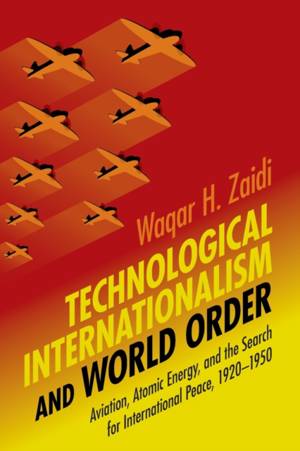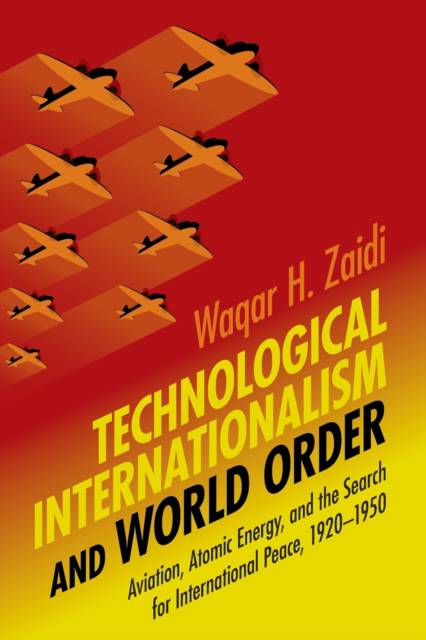
- Afhalen na 1 uur in een winkel met voorraad
- Gratis thuislevering in België vanaf € 30
- Ruim aanbod met 7 miljoen producten
- Afhalen na 1 uur in een winkel met voorraad
- Gratis thuislevering in België vanaf € 30
- Ruim aanbod met 7 miljoen producten
Zoeken
Omschrijving
Between 1920 and 1950, British and US internationalists called for aviation and atomic energy to be taken out of the hands of nation-states, and instead used by international organizations such as the League of Nations and the United Nations. An international air force was to enforce collective security and internationalized civil aviation was to bind the world together through trade and communication. The bomber and the atomic bomb, now associated with death and devastation, were to be instruments of world peace. Drawing on rich archival research and focusing on public and private discourse relating to the control of aviation and atomic energy, Waqar H. Zaidi highlights neglected technological and militaristic strands in twentieth-century liberal internationalism, and transforms our understanding of the place of science and technology in twentieth-century international relations.
Specificaties
Betrokkenen
- Auteur(s):
- Uitgeverij:
Inhoud
- Aantal bladzijden:
- 314
- Taal:
- Engels
- Reeks:
Eigenschappen
- Productcode (EAN):
- 9781108819190
- Verschijningsdatum:
- 23/03/2023
- Uitvoering:
- Paperback
- Formaat:
- Trade paperback (VS)
- Afmetingen:
- 152 mm x 229 mm
- Gewicht:
- 421 g

Alleen bij Standaard Boekhandel
+ 129 punten op je klantenkaart van Standaard Boekhandel
Beoordelingen
We publiceren alleen reviews die voldoen aan de voorwaarden voor reviews. Bekijk onze voorwaarden voor reviews.











